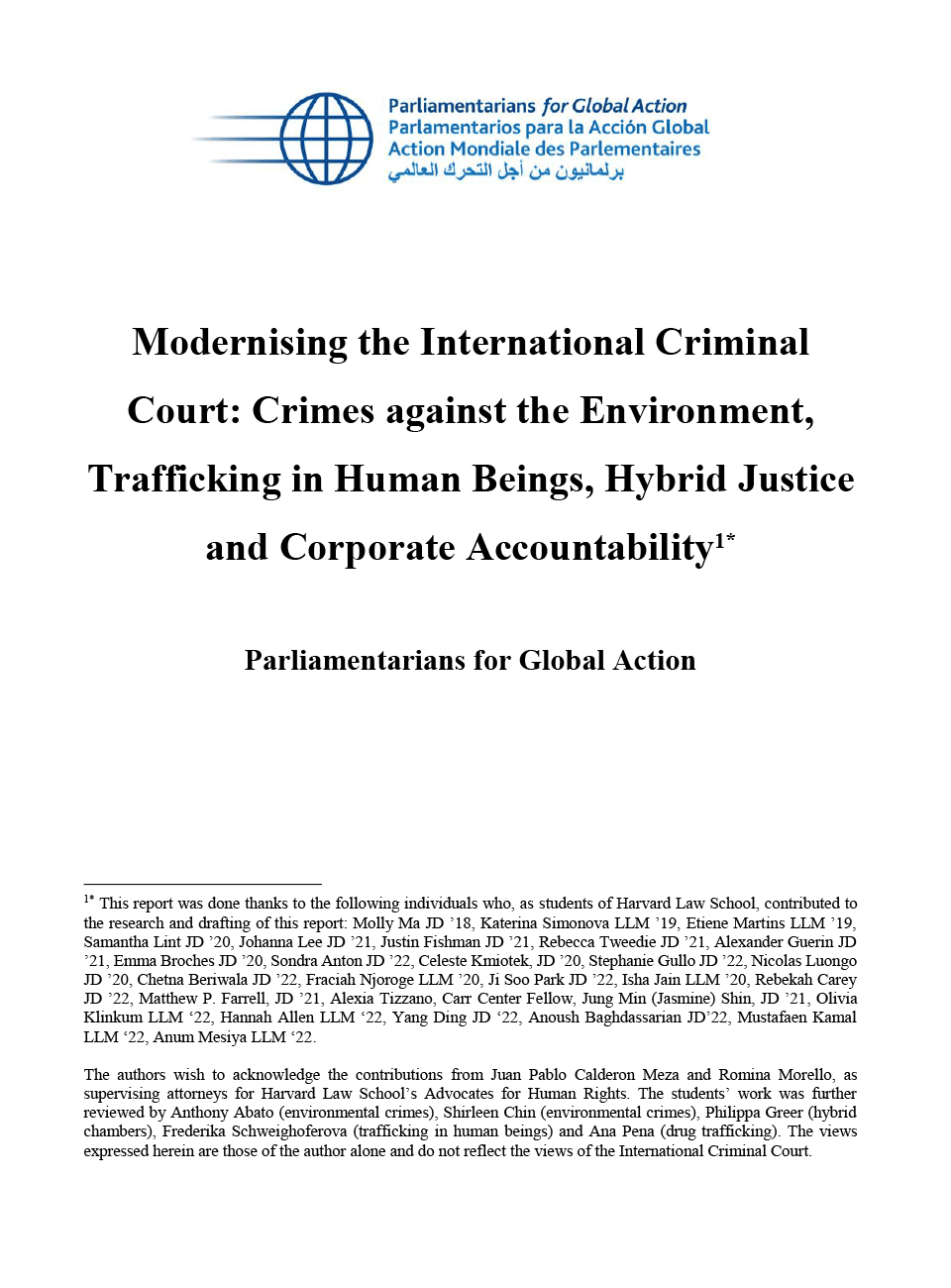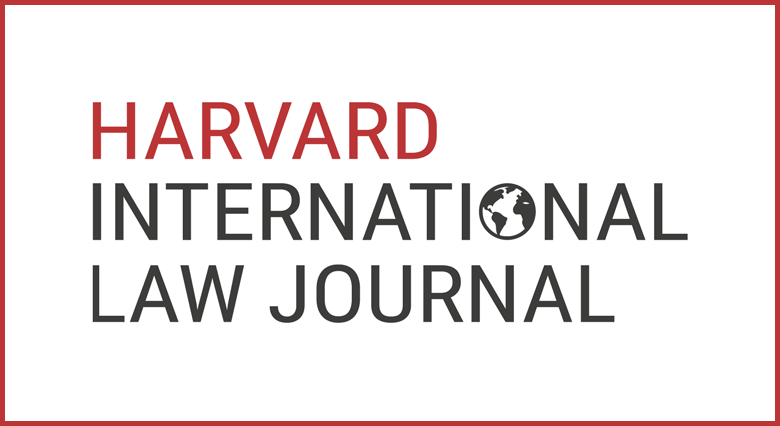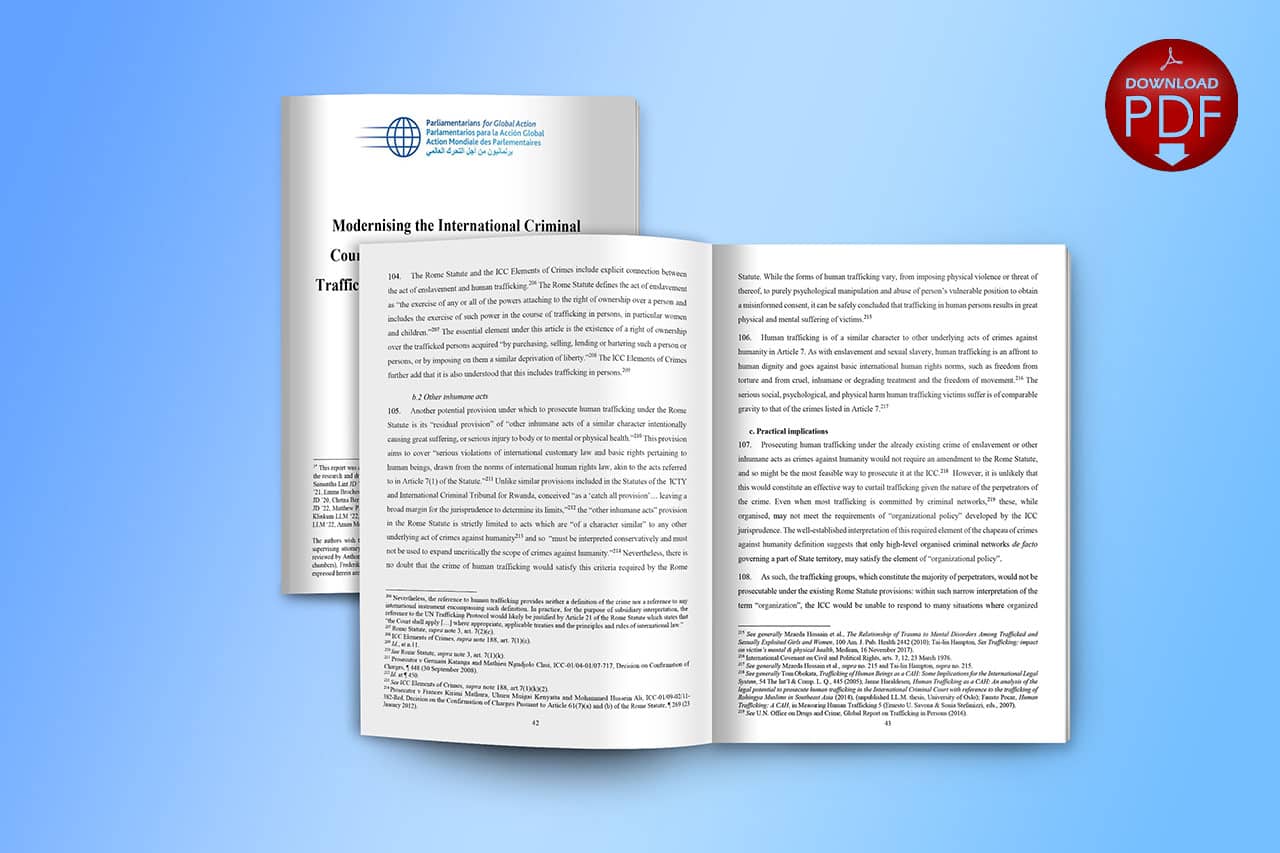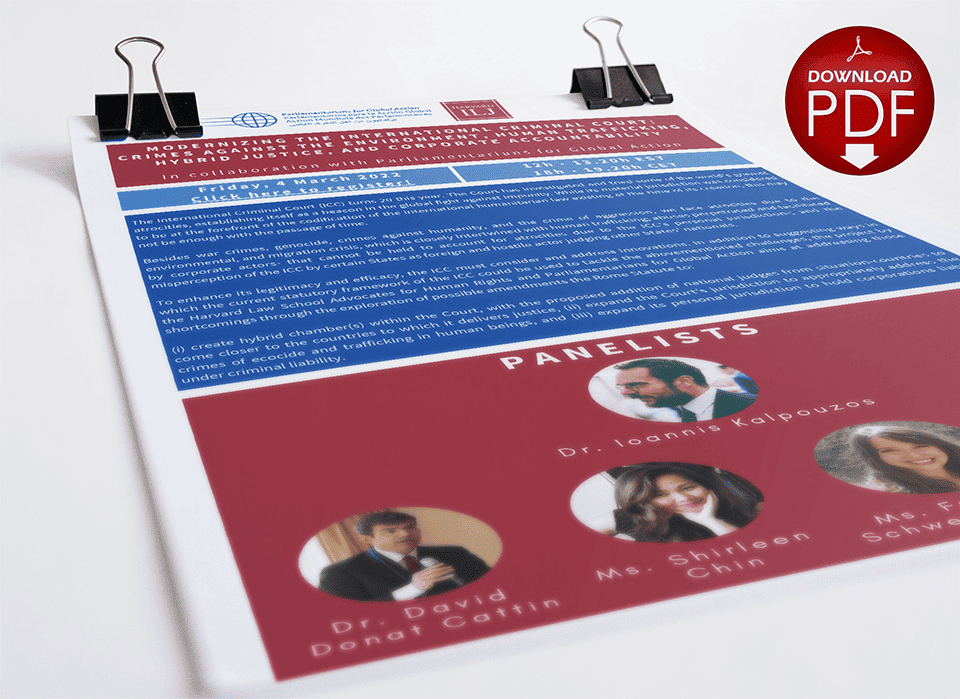In collaboration with Parliamentarians for Global Action
Friday, 4 March 2022
12h-13.20h EST / 18h-19.20h CET
The International Criminal Court (ICC) turns 20 this year. The Court has investigated and tried some of the world’s gravest atrocities, establishing itself as a beacon in the global fight against impunity. While its material jurisdiction was considered to be at the forefront of the codification of the international humanitarian law existing at the time of its creation, this may not be enough with the passage of time.
Besides war crimes, genocide, crimes against humanity, and the crime of aggression, we face atrocities due to the environmental, and migration crisis, which is closely intertwined with human trafficking; abuses perpetrated and facilitated by corporate actors- that cannot be held to account for atrocities due to the ICC’s personal jurisdiction-; and the misperception of the ICC by certain States as foreign and hostile actor judging other States’ nationals.
To enhance its legitimacy and efficacy, the ICC must consider and address innovations. In addition to suggesting ways in which the current statutory framework of the ICC could be used to tackle the abovementioned challenges, the project by the Harvard Law School Advocates for Human Rights and Parliamentarians for Global Action aims at addressing those shortcomings through the exploration of possible amendments the Rome Statute to:
(i) create hybrid chamber(s) within the Court, with the proposed addition of national judges from situation-countries to come closer to the countries to which it delivers justice,
(ii) expand the Court’s jurisdiction to appropriately address the crimes of ecocide and trafficking in human beings, and
(iii) expand its personal jurisdiction to hold corporations liable under criminal liability.

Moderator:
Dr. Ioannis Kalpouzos, Visiting Professor at Harvard Law School and co-founder of Global Legal Actiohn Network

Panelist:
Dr. David Donat Cattin, Secretary-General of Parliamentarians for Global Action and Adjunct Professor of international law at New York University (speaking on hybrid chambers)

Panelist:
Ms. Shirleen Chin, Founder and Managing Director of Green Transparency; representative of Stop Ecocide Foundation for the Pacific region (speaking on crimes against the environment

Panelist:
Ms. Frederika Schweighoferova, Director, Campaign for the Universality and Effectiveness of the Rome Statute of the International Criminal Court System at Parliamentarians for Global Action (speaking on human trafficking)

Panelist:
Mr. Juan Pablo Calderón Meza, Associate Legal Officer at the International Criminal Court (speaking on corporate accountability)
Publication

Modernising the International Criminal Court: Crimes against the Environment, Trafficking in Human Beings, Hybrid Justice and Corporate Accountability
Description
The International Criminal Court (ICC or Court) must evolve to enhance its legitimacy, efficacy, and ability to tackle the challenges of today’s world. Besides war crimes, genocide, crimes against humanity, and the crime of aggression, we face further atrocities in times of peace due to the environmental and migration crisis, which is closely intertwined with human trafficking; abuses perpetrated and facilitated by corporate actors- that cannot be held to account for atrocities due to the ICC’s personal jurisdiction-; a lack of state cooperation with the ICC, also derived from the misperception of the ICC by certain States as foreign and hostile actor judging other States’ nationals.
PDF(s)
Additional Details
- Publication Type: White Paper
- Author(s): Parliamentarians for Global Action





